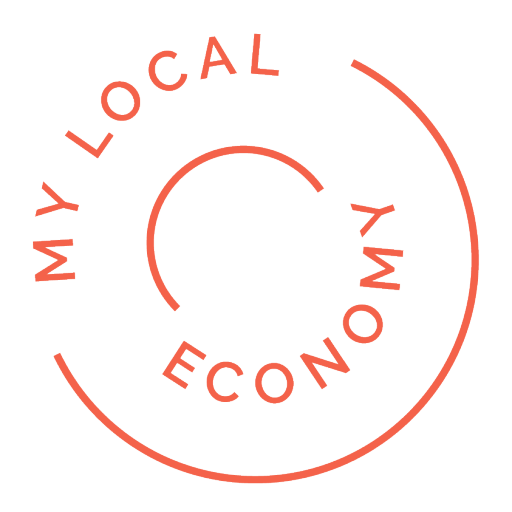Diversity and local context reigns, and national one size fits all policies will not catalyse economic growth and renaissance – this is the fundamental lesson from studying international development and the lessons for UK economies
in 2011 I spent 6 months as a part-time visiting Scholar at the University of Cambridge looking at the lessons from international development for local and regional economic development in the UK. This article below represents the main findings from this work.Whereas local and national economic policies are heavily proscribed and influenced in countries like the UK, local economic development policy in emerging economies and developing nations will in the future follow paths of ‘self discovery’ probably on a more flexible and tailor-made basis than in the ‘developed’ world. The question is – will this ultimately disadvantage local economies in the ‘developed’ world if they continue to follow fixed, even unsuccessful paths which are tied to national austerity and liberalization policy priorities?
A short article summarising this research can be downloaded here. The main findings were as follows:
What are the lessons from international development for local economies?
HELPING THE PROCESS OF “SELF DISCOVERY”
The success stories in international development have a tendency to be unconventional in their approach. Solutions to a lack of private property rights such as found in China (and emulated in Vietnam) have helped enable very high growth rates. Trade protection, as practiced by Japan, South Korea and other East Asian countries in the latter half of the twentieth century significantly contributed to these nations’s economic development and growth, despite defying neoclassical economic orthodoxy which states that open trade is the route to growth.
A lesson to be drawn perhaps is that local and regional economies should seek their own unique solutions, and should have the freedom to “self-discover” these. To some extent, the UK’s recent policy experiment with localism (the devolution of fiscal and policy powers from national to local levels) could be interpreted as a positive step towards this.
HELPING WINNERS PICK THEMSELVES
Many successful approaches have enabled winners to effectively pick themselves. Whether it is firms having to meet very strict export performance targets or having all state assistance removed in South Korea (Chang, 2009); or seedcorn investments and assistance in 20 industries, with three then emerging as internationally trading industries in Chile – all have in common a seriously well informed set of officials or executives (on both policy and commercial terms), and a habit of enabling solutions and development rather than top-down implementation.
INSTITUTIONS MATTER, CONTINUITY HELPS
Institutions matter – and in particular having a human resource capacity that can deal both with the policy and commercial worlds. In this way, public policy can be better informed by commercial need and opportunity; and commercial interests can also be channeled into delivering greater societal value. Most of the examples of success in international development have, at their heart, an effective cadre of officials involved over a 20 or 30 year period.
AND WHAT ARE THE LESSONS FROM DEVELOPED NATIONS?
Developed nations have put a significant degree of effort into researching and tracking spatial socio-economic disparities, and in the development of ‘regional policy’ in the face of industrial restructuring. This has been less of a concern in international development studies, with little systematic documentation of the facts of what has happened to spatial and regional inequality over the past ten to twenty years (UNU, 2005).
Context matters and pragmatism reign, but with scope for experimentation
Development economics and the experience of international development tell us that there is not one universal answer or set of answers to economic development and growth. Context matters. There is a great deal of relative ignorance about what works – which calls for an approach which is experimental, shaped by available evidence and experience, and carried out using the tools of diagnostics and evaluation. The oft-quoted dichotomy between the state and markets play little role in this worldview and pragmatism reigns (Rodrik, 2008).
This places the current claim that the current policies of austerity and deregulation will deliver growth at odds with the international development experience. A one-size-fits-all formula for international development has been tried and convincingly failed. Why would it work for ever local or regional area in a developed economy? China’s TVEs have been stunningly successful despite the absence of private property rights and an effective judiciary. Conversely, the Latin American experience of the 1990s indicates that the standard policy prescriptions do not guarantee an appropriate investment climate.
The question is not whether or not the state will play a role in the local economy, but how? Other lessons tell us that strong institutions are important, but also that they should be fit for local context and purpose, be allowed to “self discover” customized, workable solutions to growth, and also be permitted to evolve as the local economy develops and new challenges and opportunities emerge. Probably the last thing we need is to exclusively have narrowly prescriptive national programmes or funding regimes for local economies. Local economies can learn from best practice, but also need to flexibility to implement and adapt in line with local conditions.
A plausible scenario for the future is that local economic development policy in emerging economies and developing nations will follow paths of ‘self discovery’ probably on a more flexible and tailor-made basis than in the ‘developed’ world. The question is – will this ultimately disadvantage local economies in the ‘developed’ world if they continue to follow fixed, even unsuccessful paths which are tied to national austerity and liberalization policy priorities?



